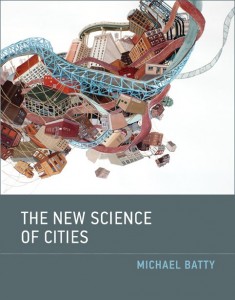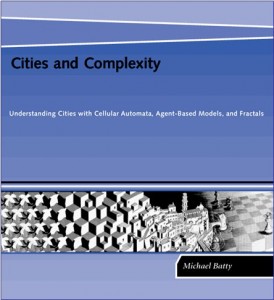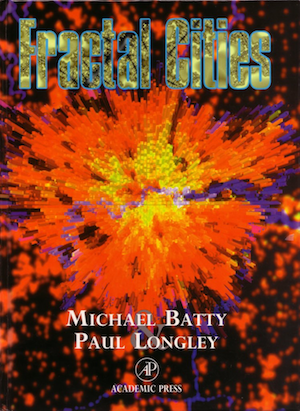 A complex system is often defined as ‘emergent’ when some process generates unexpected, surprising and ordered outcomes. The classic exemplar is segregation in Schelling’s model. But there is strong, weak, first order, second order emergence. Click to read Nigel Gilbert’s paper (2MB) and watch this video. A complex system is often defined as ‘emergent’ when some process generates unexpected, surprising and ordered outcomes. The classic exemplar is segregation in Schelling’s model. But there is strong, weak, first order, second order emergence. Click to read Nigel Gilbert’s paper (2MB) and watch this video. |
- "Thus, in fact, appear the methods of a Science of Cities ....." Patrick Geddes (1915) Cities in Evolution
Posts Cloud
- Agent-Based Models
- Allometry
- Animations
- Cellular Automata
- Chaos
- Complex Systems
- Computer Graphics
- Design
- Emergence
- Entropy
- Evolution
- Flows, Fluxes
- Fractal Geometry
- Morphology
- Networks
- Optimisation
- Path Dependence
- Policy Analysis
- Scaling
- Simulation
- Smart Cities
- Social Physics
- SpatialInteraction
- Tipping Points
- Transport
- Uncategorized
- Urban (LUTI) Models
- Urban Dynamics
- Urban Growth

My Books from MIT Press


Download Fractal Cities from
http://www.fractalcities.org/




